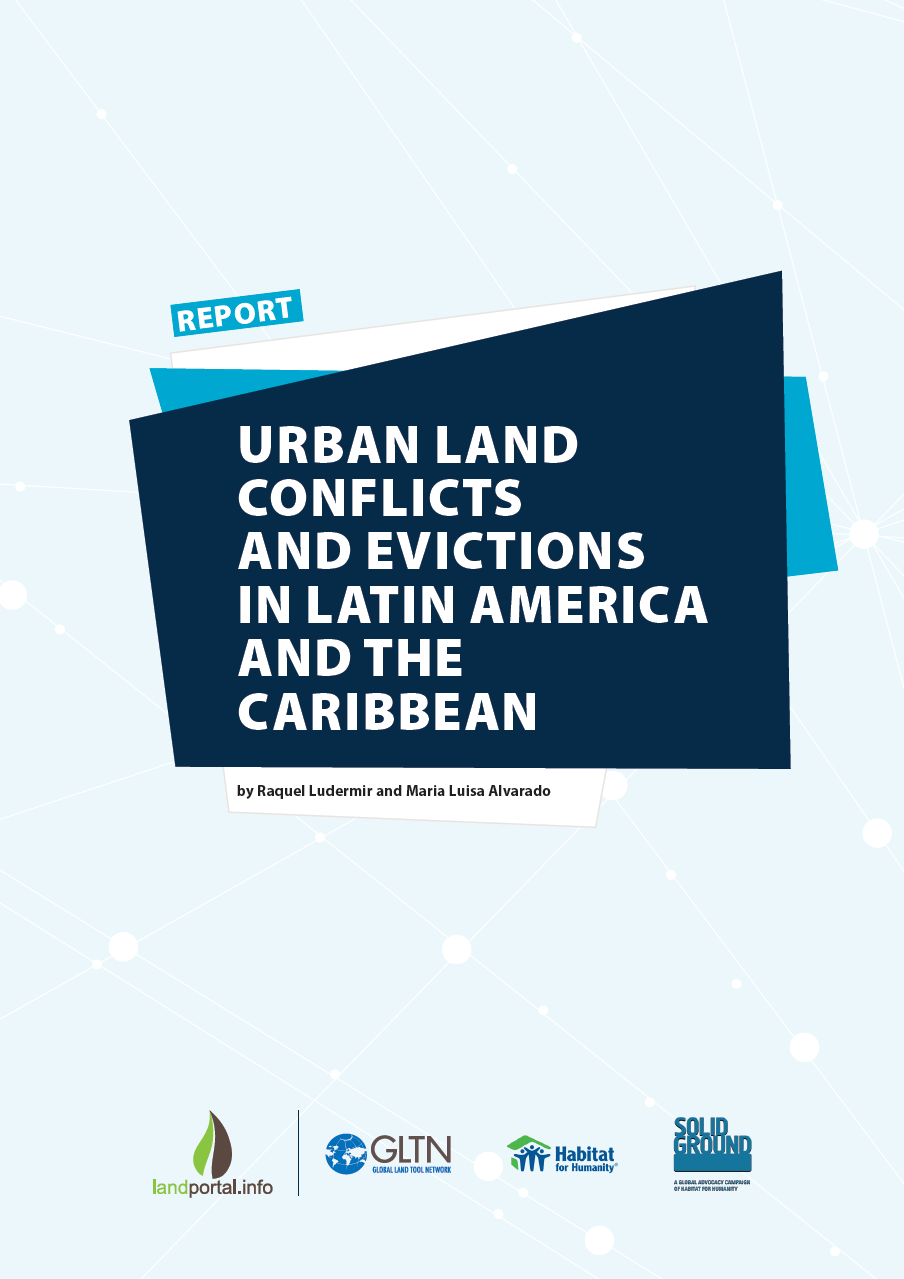Resource information
The Latin American and Caribbean Urban CSO Cluster, part of the Global Land Tools Network (GTLN), together with Habitat for Humanity’s Solid Ground Campaign and the Land Portal Foundation, launched an online debate on Urban Land Conflicts in Latin America and the Caribbean in January 2017. Responding to the common interest to make information easy to access and flow to boost collaboration among stakeholders as a critical basis to improve land governance.
This report is about local experiences, tools, policies, advocacy, capacity building and other innovative initiatives addressing urban land conflicts and evictions in the LAC region which came out from the online debate.
The LAC Land Tools Urban Cluster and the Land Portal recognize that local land information, knowledge, practices on policies, tools are limited captured, not always published, not easily accessible, very limited shared, and grassroots information, data, is underrepresented in decision making; and considers that and the use of open linked platform makes the information, data, and knowledge to flow easily among stakeholders (people / organizations). The Urban Land Conflicts in Latin America and the Caribbean Online Forum is clear evidence on this.
The contents of this report builds upon contributions from nearly 20 organizations in 10 LAC countries to which we acknowledge their inspiring and transformational work.
Key activities framed the online forum, such as the Experts Group Meeting in San Jose, Costa Rica, on July 2016, held in the framework of the Scoping Study: “Responsible Land Governance and Tenure Security in Urban and Peri-Urban Areas in Latin America and the Caribbean”. This was a key opportunity to capture the experiences and contributions of land experts. In addition to valuable efforts of key stakeholders in Brazil and many other countries engaged in the Solid Ground Campaign.
Next steps planned include putting in place a Regional Working Group on Land Conflicts to expand and mobilize knowledge, capacities, expertise, and tools to influence land policies at local level, and to work towards the New Urban Agenda, Sustainable Development Goals and Sendai commitments into action.




